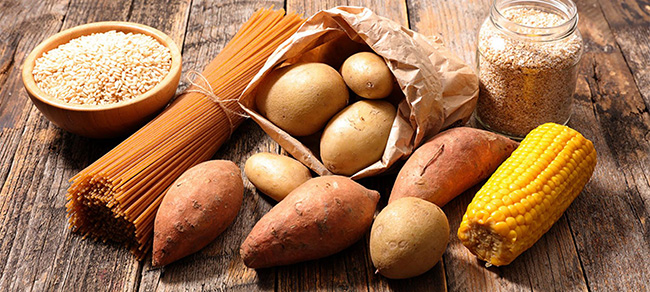Carbohydrates have a bad rap when it comes to muscle-building and fat loss. But although they spike insulin levels which can result in your body storing more energy as fat, rather than using fat for energy, manipulating your carb intake is one of the most effective ways to get leaner. You just need to be lean enough in the first place to deserve those carbs.
ARE CARBS GOOD OR BAD FOR ME?
It depends on the type, source and, in some cases, the time you consume them, based on your ultimate training aims.
SO WHAT HAPPENS WHEN I EAT CARBS?
Carbs are digested and processed at different rates depending on their structure. In basic terms, the simpler the source – such as sugar – the faster it’s digested, with the result being a more rapid rise in blood glucose levels. This in turn prompts your pancreas to release the hormone insulin, which carries glucose – an energy source – into your body’s cells where it can be used.
WHAT ARE THE DIFFERENT CARBS?
Carbs are defined by the number of sugar molecules they contain. Complex carbs have three or more sugar molecules. This means they take longer for your body to break down and therefore help to maintain a steady blood glucose level. Simple carbs, on the other hand, elevate blood glucose quickly. Excessive consumption of these can cause short-term problems such as excessive eating and weight gain, as well as serious health issues in the long term.
WHICH CARBS ARE COMPLEXOR SIMPLE?
The glycaemic index (GI) tells us how quickly each type of carb causes blood glucose levels to rise. Foods are rated one to 100, with 100 causing the fastest rise and the more complex carbs below 60. But this index is only really relevant if the carbs are consumed alone, because eating protein, fats and fibre at the same time will change a carb’s GI value. So basing a diet on the GI alone is not advisable.
DO CARBS MAKE YOU FAT
Not if you eat the right types in the right quantities. Problems arise when too many simple sugars are consumed too regularly. Processed sugars provide a lot of calories but few other nutrients and can block the body’s absorption of other essential nutrients.
WHY ARE SIMPLE CARBS SO BAD?
It’s easy to eat a lot of simple carbs very quickly and therefore consume too many calories. In addition, eating too many simple carbs results in too much insulin being released regularly into your system. This affects your insulin resistance and is a precursor of type 2 diabetes, when you have constantly elevated levels of glucose in your blood. Over time, glucose builds up in your organs and nerve endings, which can have serious health implications.
ARE CARBS VITAL TO A FAT-LOSS PROGRAMME?
For elite athletes and those with intense training schedules, carbs have a big role to play, but for the average person wanting to lose weight, consuming the right amount of quality protein, fats, essential nutrients and fluids is far more important. The body can metabolise proteins and fats into glucose in the absence of carbs, if necessary.
WHICH CARBS SHOULD I GO FOR?
Vegetables provide the best bang for your buck. Packed with dense nutrients and fibre, they cause a very stable and manageable rise in blood sugar. If you’re training intensively, complex carbs such as rice and potatoes can also help energy levels. Treat wheat with caution – many people have problems digesting it efficiently.








0 comments: